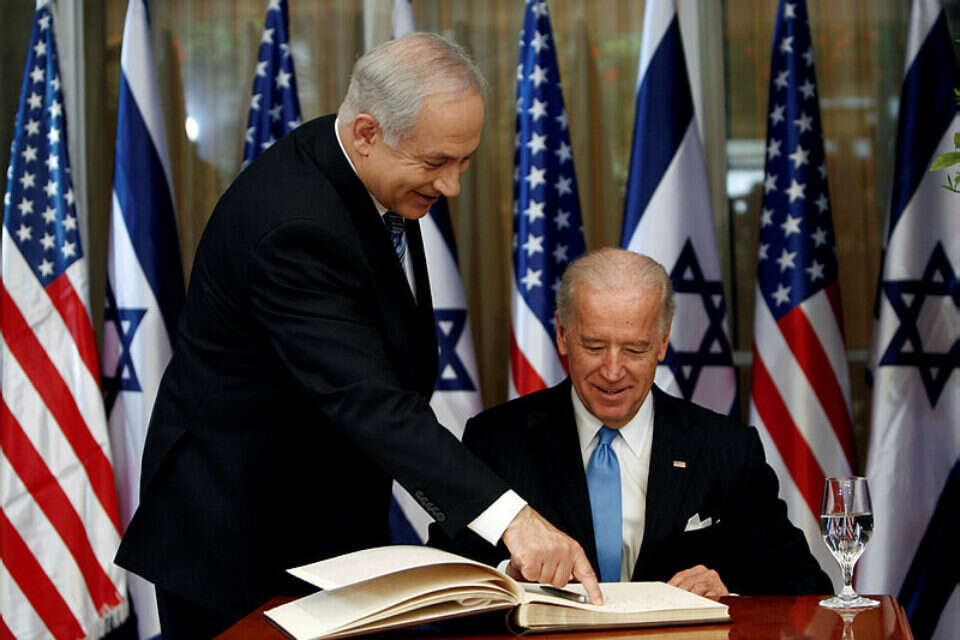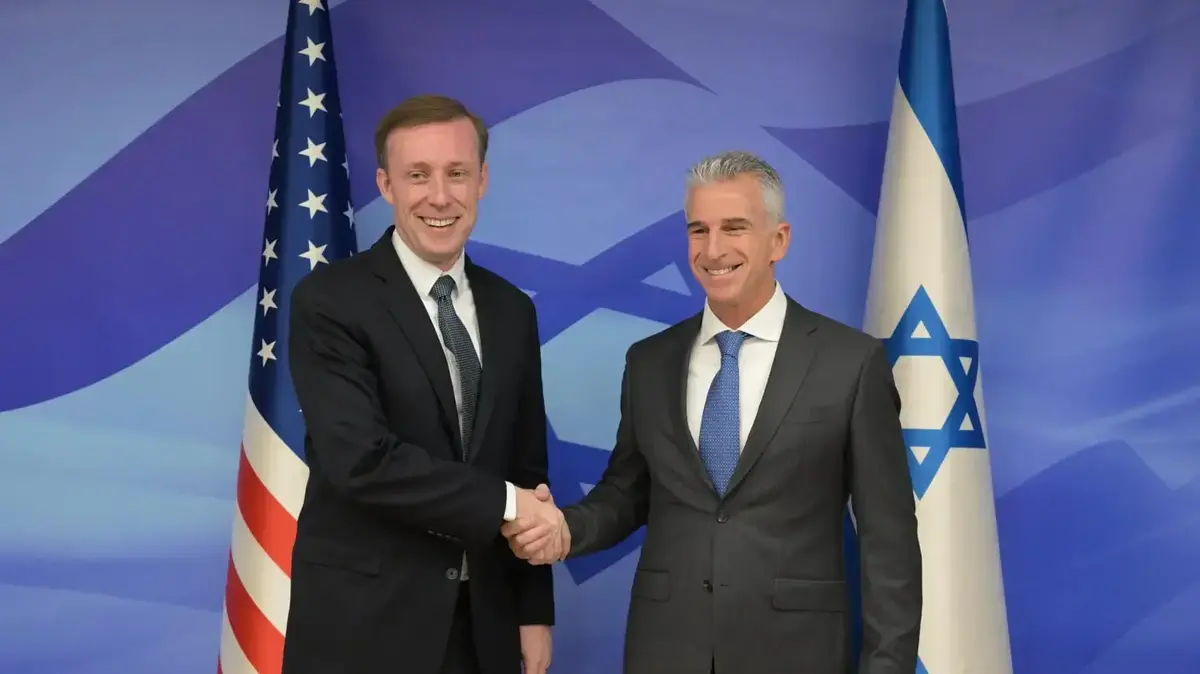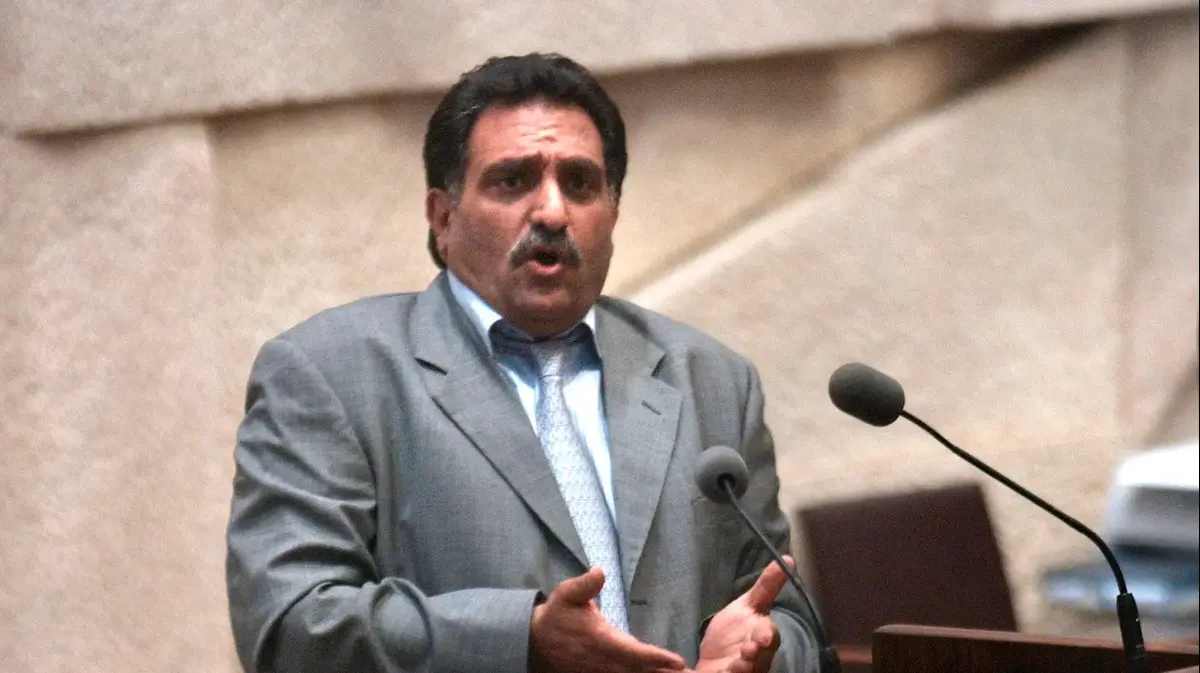It seems that Israel is unable to prevent the US from approaching a nuclear agreement with Iran. Strategic Affairs Minister Ron Dermer and National Security Council head Tzachi Hanegbi took off yesterday for meetings in the United States on the subject, and it is unclear what achievements they will return to Israel with, and how significant they will be.
It appears that the meetings between the two in the United States will focus on two critical issues: the Biden administration's renewed striving for an agreement with Iran and the possibility of advancing a normalization agreement with Saudi Arabia. Behind the scenes, it turns out that the Americans are linking the two. How?
The United States seeks to quiet the Middle East arena in the face of Iran's relentless striving to enrich uranium at a level approaching 90% and to distance it diplomatically. Therefore, in the face of Israel's possible opposition to such an agreement, and the fact that the possibility of an attack was never off the table, the possibility of advancing a normalization agreement between Israel and Saudi Arabia in return, which could quiet the Israeli front, resurfaced.
Will he return to Israel with significant achievements? Hanegbi, Photo: Jonathan Zindelflash 90
Former political sources believe that Prime Minister Benjamin Netanyahu's office is inclined to accept the deal being woven. In that case, some say it would be a "surrender agreement."
"Working in every way"
In fact, the Biden administration has never given up on a diplomatic solution to Iran, despite the latter's repeated excesses vis-à-vis the International Atomic Energy Agency. The goal of the United States is to delay Iran as much as possible from reaching the level of enrichment at 90%, at a price it sees as minimal: an interim agreement that is not tightened, and a partial lifting of sanctions that will allow billions to flow into the failed Iranian economy.
Former diplomatic sources told Israel Hayom that "the fact that no public steps are being taken by Israel against the agreement being woven indicates agreements beneath the surface. Otherwise, Netanyahu would have acted as he did in 2015."
On the other hand, Israel denies reports that Israel is no longer acting against the agreement. A source in Netanyahu's office said in response to a request from Israel Hayom that "the State of Israel has not changed its position." "Israel is acting in every possible way, through all pipelines and at all levels, against any attempt to allow Iran to attain nuclear capabilities and nuclear weapons," he explained. One of the ways is probably the upcoming meetings that will be held in the United States, Dermer and Hanegbi. Israel, on the other hand, refuses to comment on their existence.
Important meetings, Dermer, Photo: Efrat Eshel
Danny Sitrinovich, an associate researcher in the Iran program at the Institute for National Security Studies (INSS), confirmed that the Americans are interested in an agreement. "Politically, Biden can't go back to the original agreement because he simply won't be able to ratify it in Congress," he said. "But the U.S. administration is still very concerned that Iran is one step ahead of enrichment at the 90% level, so they need to 'tighten the screws' so that the Iranian regime doesn't achieve that. On the other hand, the Iranians want to return to the agreement because they need easing the oil sanctions, that's the most significant thing for them."
According to Sitrinovich, in the situation that has arisen, "both sides have the possibility of reaching an agreement of a limited nuclear outline in which it will be agreed to stop enrichment above 20%, in return for some sanctions relief and the resulting injection of funds into the Iranian economy."
Prevent an attack
Former head of the National Security Council Meir Ben-Shabbat, who now heads the Misgav Institute for National Security and Zionist Strategy, describes this agreement as a surrender agreement. "An agreement that keeps Iran close to a nuclear threshold state, frees up funds for it and enables its buildup is bad," he said.
Any agreement that allows for buildup is bad. The Natanz nuclear facility, archive, photo: E. P
Ben-Shabbat also argues for the negative impact on the entire region in the American mindset, which conveys such a move that allows Iran to continue maintaining its new position on the regional and global map. "Such an agreement will continue to convey weakness on the part of the United States and the West towards Iran, weakening them in the struggle for the new world order, especially when this is done at a time when Iran continues to stir in other arenas and is involved in supplying drones to Russia for the war in Ukraine," he explains. "Such an agreement will allow Iran to have the best of both worlds: both to continue its nuclear efforts through deception and secrecy, and to benefit from its resources and its new position in the global arena."
The feeling that this is a "surrender agreement" depends on the observer. According to Sitrinovich, there are almost no other options on the table in the Iranian context if one does not want to reach an attack. "This is indeed a weak outline and not an extraordinary diplomatic art," he says. "I don't see Israel influencing the event or succeeding in destroying the agreement, especially when the Americans present it as a very limited agreement. In return, the administration will probably give Israel this candy in the form of progress with the Saudis."
Israel's "candy"? Bin Salman and Biden, Photo: Reuters
It should be noted that the agreement between Saudi Arabia and Israel and the United States is also tainted by problematic aspects for Israel. In other words, Hanegbi and Dermer's meeting in the United States will almost certainly also deal with the issue of Saudi demands for civilian nuclear weapons and advanced weapons systems that will improve Israel's qualitative advantage in the region. Hanegbi expressed Israel's concern about the weapons systems demanded by Saudi Arabia before taking off earlier this week, but the issue of civilian nuclear weapons could also fall into problematic hands in possible future regime changes in Saudi Arabia. Israel has already learned this lesson from its neighboring country, Iran.
Wrong? We'll fix it! If you find a mistake in the article, please share with us








